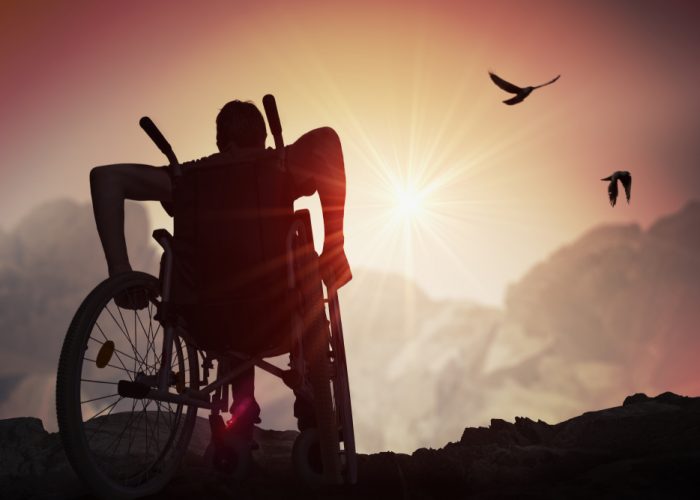By Dr. Evan Parks–In your search for answers about your chronic pain, how many doctors have you met with who asked you about a history of emotional trauma? If a doctor did ask you about trauma, did this information change the kind of treatment you were provided for your pain? There is growing research evidence that suggests people with a history of emotional trauma are more likely to develop problems with persistent pain.
Avoiding The Past
We have found that individuals with a history of emotional trauma, especially earlier childhood trauma, do not have conversations with their health care professional about their difficult past. We know this because of the large number of patients in pain rehabilitation programs who say, “I have never talked about my history of abuse before. This is my first time talking about this. No one has ever asked me about the abuse I went through.”
What usually happens in a medical setting when a patient does mention their history of trauma is that it is simply noted in the medical chart. Nothing specific is done with the information and the history of trauma does not in any way impact the treatment that is provided.
Sexual abuse, similar to other adverse childhood events including divorce, loss of a parent, family dysfunction, humiliation, verbal abuse, neglect, alcoholism, and criminal behavior of parents cause significant changes to a child’s mental and physical health. These changes remain from childhood into adult life, leading to an increased likelihood of health complications, mental health problems, and an increased perception of pain.
The Mind-Body Connection
Rarely do individuals with a history of trauma sit down with a medical provider ready and interested in talking about their painful past. Part of the struggle is that both patients and health care providers alike do not see the point of talking about up setting emotional events. Most physicians do not have the time to hear the stories and do not feel qualified to give any direction once they do learn about a patient’s trauma.
Some patients will directly state, “What is the point of talking about my past? I am here to get help with my pain. Talking about my past is not going to change anything.” Without knowing the connection between the mind and body, this attitude is understandable. Most people, including healthcare professionals, need to be informed learn that what happens to us emotionally impacts our body as well, often for many years.
New Research
Our knowledge of how stressful childhood events impact health throughout our life has grown enormously in the last several years. We can now explain how painful childhood experiences like divorce, abuse, loss of a parent, alcoholism of a parent, or having a family member with a mental health problem, will impact the following:
- Physical growth and development of children
- Functioning of the immune system
- Brain development
- Concentration
- Attention
- Memory
- The ability to control emotion
- The perception of danger
- The ability to experience pleasure
The connection between stressful childhood experiences and the impact on health is so clear that it is now possible to predict a person’s life expectancy may be shortened by up to 20 years depending on what occurred in their childhood.
If you are interested in learning more about the impact of adverse childhood events on your own life, take a few minutes to click on the highlighted link and complete the free online survey called, “The Adverse Childhood Events Survey” and discover learn your score. You can also receive an email with a free 18-page download that explains your what your ACE score means and how your score might be impacting your emotional and physical health.
Reference
Anda, R., Felitti, V., Bremner, J., Walker, J., Whitfield, C., Perry, B., Dube, S. & Giles, W. (2006). The enduring effects of abuse and related adverse experiences in childhood: A convergence of evidence from neurobiology and epidemiology. European Archives of Psychiatry and Clinical Neuroscience. 256(3), 174-186.




